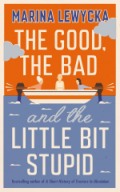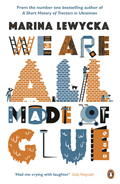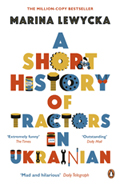![]()
When my old car and I had to part.
Being a judge on the Prince Maurice prize was the best prize of all
In 1970 I worked on Kevin Brownlow and Andrew Mollo's film Winstanley. This is a piece I wrote for the BFIs DVD release.
![]()
After 14 years together, my mossy old motor and I have finally reached the end of the road
The Guardian, Tuesday September 18 2007
It is appropriate, I think, that our last journey is to the Dumpit site. It's the place where things go when no one wants them any more
Farewell, my Monty! This week, after 14 years and 88,000 miles together, my beloved car and I are parting ways. Although in human terms, 14 years is mere adolescence, in car years, apparently, 14 is over the hill. Yet despite your idiosyncrasies and frailties, I love you more now than in your days of youthful friskiness, when your bright red coat was unfaded, and young men would pull up beside us at traffic lights and rev up a challenge. We've aged and settled down together.
Over the years, crouched under the cherry tree in the front garden, you became less a manufactured object and more a part of nature. Birds dropped their droppings, taking the gloss off your bodywork. Moss grew along your window ledges. A family of spiders made their home in the driver's-side wing mirror, spinning a fresh cobweb every day. In spring, the cherry blossom got sucked in through the air vents, covering everything with pink confetti, and there was always a lingering odour of cat-pee from our many trips to the vet. One summer, there were fleas. Still, you started each morning, on the first key-turn, without fail.
Only once did you let me down, and that was when I flattened your batteries after a night at the pictures with friends. We sat arguing about the film for hours, with the headlights blazing and the windscreen wipers swishing away. As the battery got low, the alarm kicked in and I couldn't turn it off. My friends abandoned ship, and I drove home - it was well past midnight - with the alarm sounding and the flashers flashing. Nobody tried to stop me. I parked as far away from houses as I could, and listened to the alarm still going strong as I drifted off to sleep. By morning, it was quiet.
After that, the alarm system was never the same again. It became erratic, and had to be disconnected. Then the horn went. (No, it is absolutely not true that the life of a car horn is related to the frequency and vigour with which it is used.) Paul at Snuff Mill Garage said: "Someone told me you'd wrote a book and made a load of money, but I said, 'Nah, it can't be her, she's still driving around in that old banger.'" He did his best to fix the horn, but Monty was so old that fitting a new part would cost more than the car was worth. We'd reached the end of the road.
It is appropriate, I think, that our last journey together is to the Dumpit site in Shirecliffe. It's the place where things go when no one wants them any more. In the olden days, you could take them to Oxfam, but even Oxfam was sniffy when I rang up about my old but serviceable computer monitor. "Is it a flat screen?" they asked. Is it heck. And two adjustable office chairs, rescued from skips, that would adjust only to someone shaped like a gnome; now I'm an author I can afford a proper office chair of my own, one that goes up and down and spins right around. Great for passing the time while waiting for great thoughts to pop into your head.
Now, the Dumpit site is a dangerous place for me, because I have been known to come back with more stuff than I took. I just can't bear to see all these perfectly good things going into the crusher. There's a whole row of discarded televisions, all much newer than ours at home. Look at those three charming wicker chairs. And that tapestry footstool would be perfect for Dad. Ah, it's got a leg missing.
My parents would have been horrified at the Dumpit site - they never threw anything away. There were two sheds at the bottom of the garden, full of things waiting to be repaired. It seems quaint now, this careful preserving of objects that no longer have value, but actually, if we're all to carry on living together on this limited planet of ours, won't we have to go back to doing things that way? And would it be so terrible? These thoughts are heavy in my mind as I hand over Monty's keys to the young man in the car showroom. He is sensitive to my concerns, and reassures me that Monty, spruced up and re-homed, still has a great future ahead of him. He's got a terrific engine. Three new tyres. Low mileage. Careful lady owner. Well, not that careful. How was I to know that the flashing orange light on the dashboard meant that I should put oil in? In where?
But even more than his mechanical prowess, I want to pay tribute to Monty's character-enhancing qualities. As the wind-down windows got stiffer, I had time to pause and reflect, and many an innocent motorist was spared a volley of unladylike invective. When the horn failed, I learned calm forbearance. Even after the alarm and central-locking packed up, no one tried to steal him. That was the best thing about Monty - he didn't arouse envy. People would look at him and smile, and they would feel OK about their own crap cars, their own crap lives.
And couldn't we all do with less envy? Yes, all those people who say better male role models are the answer to youth crime need look no further than Monty. If the wealthy, powerful and glamorous in our increasingly unequal society put their money (about £300) where their mouths are, and drove around in modest, charming cars like Monty, instead of flaunting and squandering their cash on Porsche 4x4s and suchlike, the young and poor would feel less envious and less desperate for "respect". As far as I know, Monty is still available, on a forecourt somewhere near you.
This week Marina has been putting Son of Monty (2004 Toyota Corolla) through his paces. She walked on newly opened access land above Edale: "Chest-achingly steep, but fantastic views." She visited the Andy Goldsworthy exhibition at the Yorkshire Sculpture Park: "Brilliant, unsettling and it smells as interesting as it looks."
![]()
For the Times, June 2008, from Mauritius, where I was part of a group of lucky writers judging the 2008 Le Prince Maurice prize. The Times published a shorter version.
Mauritius Viewpoint
The view from here is a wide strip of silver sand, a sky-blue bay dotted with little islets of volcanic rock and mangrove, and sheltered by a coral reef' beyond which the Indian Ocean is churning away.
 I'm here with nine other British writers. James Meek, Ewan Morrison and Sally Vickers are the finalists for Le Prince Maurice prize
for a 'literary love story'. Simon Armitage, Joanne Harris, Tim Lott, Sara Waters, Irvine Welsh and I are the judges. Richard Grant
is here too, as patron and celebrity judge. Now le Prince Maurice is not, as you might imagine, a prince of French royal blood with
a passion for literature, but a luxury five-star hotel in Mauritius.
I'm here with nine other British writers. James Meek, Ewan Morrison and Sally Vickers are the finalists for Le Prince Maurice prize
for a 'literary love story'. Simon Armitage, Joanne Harris, Tim Lott, Sara Waters, Irvine Welsh and I are the judges. Richard Grant
is here too, as patron and celebrity judge. Now le Prince Maurice is not, as you might imagine, a prince of French royal blood with
a passion for literature, but a luxury five-star hotel in Mauritius.
Tut tut? Pampered authors gadding around the world on freebies when they should be chained to their laptops producing serious works of brow-furrowing profundity? And why is a luxury five-star hotel in Mauritius sponsoring a literary prize, anyway? Carbon footprint? You may have a point there. Look, I'm not going to argue that there's a high moral purpose, or that we're advancing the cause of Literature. I'll just tell you what happened yesterday.
All the 'judge' writers have also been judging a short-story competition organised with local schools and a couple of school visits are scheduled for us. Yesterday I went to a Muslim school in a suburb of the capital, Port Louis. It's a tall shabby, crowded building seething with neatly-uniformed boys and girls. I'm here to meet a group of girls who entered the writing competition, and others who are just interested to meet an English writer.
Some forty girls aged eleven to eighteen, plus the teachers, crowd into a classroom designed to hold thirty. The girls are all wearing long gowns and headscarves, and stare at me curiously with wide smiles. I tell them a bit about myself and my books, glossing over the bit about Valentina's enormous breasts. No, they have no idea where Ukraine is. I explain. I give them a few hints about writing and invite them to read from their stories.
Tasleema's hand shoots up.
"She was very unhappy after her parents were killed in a car crash"
Almost all the stories submitted for the competition were full of car crashes, divorces, fatal accidents, hauntings, stabbings, and other
dramatic stuff. I take a risk.
"Tasleema, were your parents killed in a car crash?"
She giggles and shakes her head.
"So what makes you unhappy?"
"When my Mum tells me off."
There's a murmur of recognition. It's one of those moments when cultural barriers slip away and we're left with the bare skin and bones of our shared human experience.
"So how would we write a story about that?"
An hour or so later the class ends and the head teacher, Miriam, dons her Niquab and a pair of black gloves to lead me through the
communal areas where she might encounter her male colleagues. In the women's staff room she takes them off again, and we're soon
chatting as though we've known each other forever. Continents have been crossed.
In the afternoon I visit a Hindu secondary school in a small town some twenty kilometres south. The girls here are not head-scarved, and all the children have a relaxed, slightly cheeky air. This is going to be fun, I think. But as the children crowd into the classroom, the teacher points out a group of big gangly lads wearing football gear.
"These boys have been naughty," she says, "so we told them they cannot play football this afternoon. They will listen to you instead."
After an hour and a half of mutual punishment, it's a relief to head back to the Hotel le Prince Maurice and its perfect crescent of silver sand.
In the evening, over a few glasses of wine, some of us find ourselves brainstorming a story about a man who makes decisions on the toss of a coin. "It needs to be more universal," says Tim Lott. The coin, we agree, must be stolen - from a charity box. Simon Armitage, ever the poet, has a symbolic coin which 'haunts' the thief and cannot be given away. Sarah Waters, with her fine eye for human frailty, has the coin stolen from a cancer charity and inserted into a cigarette machine. I, rather cruder in my approach, suggest the coin is stolen from a donkey sanctuary, and the thief is savaged by a distressed donkey. For all of us, the real treat is getting away from the solitude of the writer's life and bouncing words around with other writers.
In a faraway bar, Irvine Welsh and Ewan Morrison are putting the karaoke machine through its paces. Like a bat out of hell ...!
The moon rises over the lagoon and the tipsy unfamiliar stars light us to bed.
MAURITIUS 6 JUNE 2008
![]()
(cover blurb for new CD of film, produced by BFI spring 2009)
![]()
When the authorities expelled Gerrard Winstanley and his pitiful band of Diggers from the common at St George's Hill, near Cobham, in Surrey, in 1650, they can hardly have imagined that some three hundred years later this impoverished radical dreamer and mystical proto-communist would be the subject of such intense historical interest, let alone the eponymous hero of a film.
Yet it is no coincidence that there should have been a renewed surge of interest in Winstanley and the Diggers in the 1960s and 70s, at a time when the spirit of revolution was out on the streets, and latter-day Diggers were occupying campuses and squatting houses and apartment blocks. I was a starry-eyed young PhD student in 1970, researching radical thought in the C17th. What drew me to Winstanley was not only his political radicalism, but the fact that he seemed to have a 'psychological' understanding of the Biblical narrative, unusual at that time, as an allegory of the struggle between good and evil which took place in every human heart. When I read an item in the newspaper saying that a film was to be made about Gerrard Winstanley, I had never seen Kevin Brownlow and Andrew Mollo's film It Happened Here, but I knew it by reputation. Naturally, I got in touch and offered my services.
In some ways, the making of the film Winstanley mirrored the endeavour of the original Diggers on St George's Hill. It was an enterprise held together by a shared belief that commitment was more important than money, a lack of hierarchy that occasionally bordered on the anarchic, the spirit of voluntarism, good humour, camaraderie, stoicism in the face of setbacks, and a willingness to submit to the rigours of English dirt and English weather in pursuit of a higher purpose. Like Winstanley, we had our priorities straight. We knew that fame, fortune and ambition were not what it was about; what mattered was doing it properly.
Doing it properly, in this context, meant the painstaking attention to period detail for which Brownlow and Mollo have become known. Not only did we have the correct suits of armour, as worn by Cromwell's soldiers, on loan from the Tower of London, and the correct breeds of cattle on loan from the Rare Breeds Society, but someone even managed to rustle up a newborn (well, almost) baby for the birth scene. My boyfriend at the time, Nick Rowling, who features in the camp scenes with gorgeously authentic unkempt blond curls, is also in the credits as a consultant advising about domestic interiors (he was an architectural historian), and advising Kevin and Andrew to keep conifers out of shot as much as possible (almost unknown south of the Scotland at that time). I feature in the credits as script consultant - my job was to comb through the script and weed out any words or phrases that would be inauthentic for the period, and occasionally I got to add a few of my own. But I was also in turn tea-lady, film extra (a small walk-on part as a servant), wiper of tears and grazed knees (some of the eviction scenes got a bit rough) and general dogsbody.
All the other actors, apart from Jerome Willis who played General Fairfax, were amateurs like ourselves - one of the great successes of the film was that they managed to lose themselves so utterly in the action that there was never any sense of anyone trying to 'act'. Also not 'acting' was Sid Rawle, hippy, squatter and 'New Digger', who played the leader of a band of Fifth Monarchists, travelling around England with their licentious philosophy that the elect could commit no sin - a recipe for nudity, fornication and other such 1960s-style conduct disapproved of by the more puritanical Diggers.
Even in these chaotic scenes, Kevin and Andrew were wonderfully laid back as directors. They wandered around chatting, watching, letting some things just happen, suggesting other things, sometimes getting someone to repeat a sequence several times, but on the whole you might say 'guiding' rather than 'directing', so light was their touch.
The script was based on David Caute's 1961 novel Comrade Jacob, and earlier versions drew explicit parallels between events of 1651 on St George's Hill and the present day. (The Diggers called it George Hill, refusing to acknowledge what they saw as the Popish idolatry of sainthood.) But by the time Nick and I got involved, anything that distracted from total immersion in the historic past was excised and we are left with an image of C17th rural life as purely poor and precarious, unadulterated by soap or sophistication. Even the dirty chewed-down fingernails of the Roundhead musketeer in the early battle scene speak of the vulnerability of those who are usually the pawns in history - now briefly, in this film, given their moment in the spotlight.
What those of us who worked down in the mud couldn't see, and didn't see until we finally crowded into the small cine theatre in Soho in 1975 to view the finished work, was the sheer beauty of the black-and-white footage captured by the cameraman Ernest Vincze, the transient play of breeze, light and shadow across the landscape, the dignified stoicism in the faces of the Diggers, the moments of humour.
By then, I had abandoned my PhD, broken up with Nick, and was living in a squat in the East End of London. For in the end, despite our attempts to eradicate the present, Winstanley is very much a film of the early 1970s, a time when everything was in flux, and everything seemed possible - even making a great feature film on a budget of £26,000.
![]()
<< Articles page one | Articles page two | Articles page three>>






